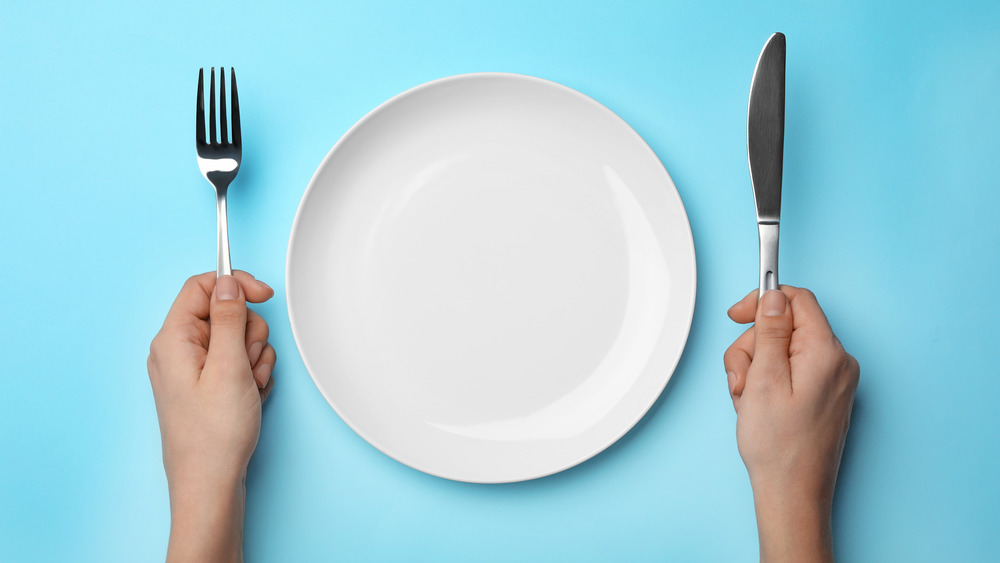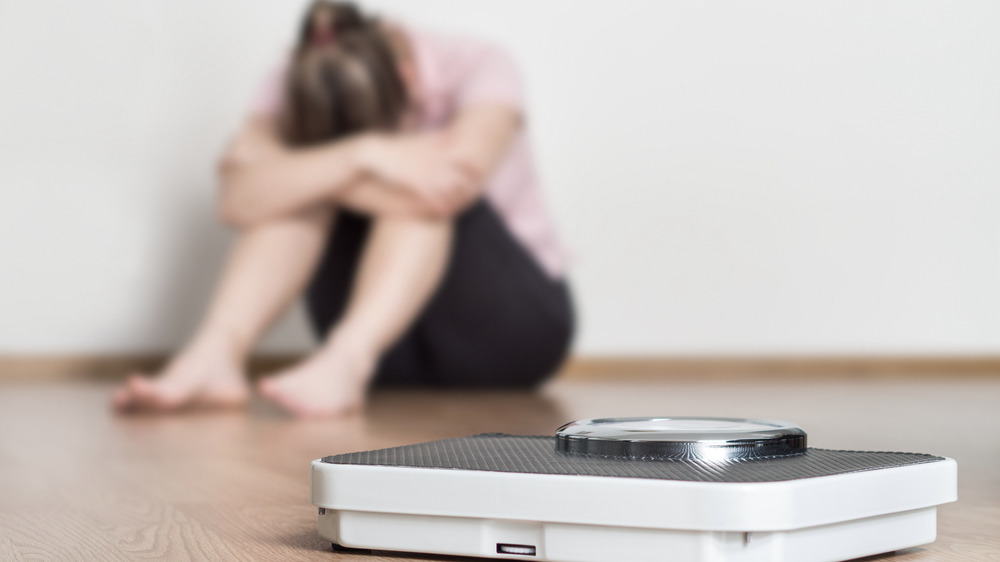Why 'Dry Fasting' Is More Risky Than You Think
Perhaps you became aware of "dry fasting" on social media, where you'll find thousands of slimmed-down influencers singing the praises of this extremely restricted approach to eating, which involves consuming absolutely no food or water for 12 to 20 hours (per Medium). After a fast is complete, most proponents of dry fasting will continue avoiding tap or bottled water, claiming they're getting enough hydration from fruit. "In the last 2 weeks I have been food free and during that time did a 75 hour dry fast (no water) to really detox and deeply clean my system. Self-discipline and inner listening is self-care," one fan of this approach posted on Instagram, followed by about a dozen hashtags containing words like "life force" and "potential."
This might sound... groovy. However, health experts are concerned that avoiding liquids puts our bodies at risk for kidney stones, organ failure, and other conditions linked to prolonged dehydration. "Dry fasting would make it difficult for our bodies to complete daily tasks, such as flushing out toxins or helping nutrients enter cells," Aurielle James-Sarpong, RD, LDN, an outpatient oncology dietitian at the Cancer Institute at the University of Maryland St. Joseph Medical Center, told Healthline. "Our kidneys, heart, lungs — and every other bodily organ on which we rely for normal, healthy living — would suffer greatly without adequate hydration." For some individuals, dry fasting can even be lethal (per Livestrong).
Dry fasting could be a slippery slope towards an eating disorder
Some health professionals are concerned that between diet trends like keto and intermittent fasting, and now dry fasting, the pendulum is swinging towards an overly-restrictive approach to dieting that could signal disordered thinking. "I would say a lot of these fasts are, it seems to me, getting more and more extreme in terms of what is being put forward under the language of 'this is healthy,'" Claire Mysko, CEO of the National Eating Disorders Association, told Medium.
The idea of following a restrictive diet trend because social media influencers recommend it adds a layer of peer pressure that might make you more inclined to take fasting to the extreme, noted Alissa Rumsey, RD, nutrition therapist. She urged people to read Instagram posts with skepticism. "Watch out for anyone who is giving specific diet advice including calories, specific portion sizes, amounts to eat each day, or who advocates cutting out certain foods or food groups," Rumsey told Well+Good. "Be careful [when it comes to] people who purport to be 'non-diet' or 'anti-diet,' yet still talk about 'good' and 'bad' foods, 'clean eating' or give advice on how to lose weight — because this is all still diet-y and restrictive."
If you are struggling with an eating disorder, or know someone who is, help is available. Visit the National Eating Disorders Association (NEDA) website or contact NEDA's Live Helpline at 1-800-931-2237. You can also receive 24/7 Crisis Support via text (send NEDA to 741-741).


